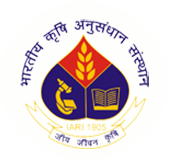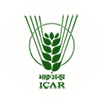Animal domestication and behavior / Edward O. Price, Professor, Department of Animal Science, University of California, Davis, CA 95616 USA.
Material type: TextPublisher: Wallingford, Oxfordshire, UK : CABI, 2002Copyright date: 2002Description: 1 online resource (x, 297 pages) : illustrations, chartsContent type:
TextPublisher: Wallingford, Oxfordshire, UK : CABI, 2002Copyright date: 2002Description: 1 online resource (x, 297 pages) : illustrations, chartsContent type: - text
- computer
- online resource
- 636.08/2 23
- SF41 .P75 2002eb
This book synthesizes existing knowledge of the process of domestication and how captive breeding and management of wild and domestic animals have affected their behaviour and other biological traits. The emphasis is on companion animals, farm animals, laboratory animals, including aquaculture species and insects, and animals kept in zoos and wildlife parks. The topics covered are: genetic and experiential contributions to the domestication process, variation under domestication, adaptation to the biological and physical environments, behavioural development in captivity, the adaptation of captive-reared wild and domestic animals when reintroduced into the wild, and the effects of domestication on animal welfare.
Includes bibliographical references (pages 230-282) and index.
Why study domestication? -- Domestication defined -- Approaches to the study of domestication -- Pre-adaptations for domestication -- Inbreeding -- Genetic drift -- Artificial selection -- Natural selection in captivity -- Relaxation of natural selection -- Genetic variability and behavior -- Morphological and physiological traits -- Feeding and drinking -- Predation, infectious diseases and parasites -- Interactions with humans -- Social environment -- Climate and shelter -- Use of space -- Behavioral development in captive animals -- Reintroductions and feralization -- Welfare and ethics.
Access limited to subscribing institution.
Also available in print format.
Title from PDF title page (viewed August 16, 2013).


There are no comments on this title.